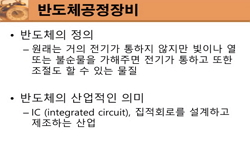In this paper some problems has been examined on the so-called general clause stipulated in the Korean Commercial Code §29-2 through a comparative study on Japan commercial code §32-2. The general clause of the Korean Commercial Code makes it clear...
http://chineseinput.net/에서 pinyin(병음)방식으로 중국어를 변환할 수 있습니다.
변환된 중국어를 복사하여 사용하시면 됩니다.
- 中文 을 입력하시려면 zhongwen을 입력하시고 space를누르시면됩니다.
- 北京 을 입력하시려면 beijing을 입력하시고 space를 누르시면 됩니다.

판례연구 : 「공정,타당한 회계관행」의 법적 의의 - 일본법제와의 비교검토 - = The Legal Meaning of Generally Fair and Proper Accounting Practices - A Comparative Study on Japan Commercial Code -
한글로보기https://www.riss.kr/link?id=A30056244
- 저자
- 발행기관
- 학술지명
- 권호사항
-
발행연도
2002
-
작성언어
-
- 주제어
-
KDC
300
-
등재정보
KCI등재
-
자료형태
학술저널
- 발행기관 URL
-
수록면
85-130(46쪽)
- 제공처
-
0
상세조회 -
0
다운로드
부가정보
다국어 초록 (Multilingual Abstract)
In this paper some problems has been examined on the so-called general clause stipulated in the Korean Commercial Code §29-2 through a comparative study on Japan commercial code §32-2. The general clause of the Korean Commercial Code makes it clear that `generally fair and proper accounting practices`mandatorily apply to drawing up accounting books. Furthermore it marks an epoch in that it is definitely ready to accept the Korean Financial Acoounting Standards, a Collective compolation of those accounting practices, into the legal boundary. In this aspect it makes a striking contrast with that of Japan. Seen from the standpoint of majority opinion that it is considered a special act of the Korean Commercial Code, the Korean Financial Accounting Standards have a system which can easily accept advanced new accounting theories such as those of America without being bothered by the Commercial Code. Actually, several-time revisions of the Korean Financial Accounting Standards have facilitated the introduction of a new accounting system to promote their adaptability to the chang in international accounting circumstances. On the other hand, the Korean legal system shows lots of major controversial issues discussed while trying to revise the Japanese Commercial Code and expects to reasonably be anayzed and accepted. Therefore, in this paper efforts have been made to analyze and solve those problems from the above viewpoint. That is, when we have not accepted the legal effect of the very Korean Financial Accounting Standards and alse kept the standpoint that all their contents are not consistent with ´generally fair and proper accounting accounting practices´, we have reached the following conclusions: we should not allow arbitrary alteration or abolition of mandatory clause in the Commercial Code based on the Korean Financial Accounting Standards and we should not alse consider the superficial and formal violation of the Korean Financial Accounting Standards as that of the Commercial Code. However, at the same time I have to admit that there are some limits to consistently keeping the above analytic standpoint in this paper on the premise that the Commercial Code has not tried hard to actively accept the rapidly changing accounting system for over a decade. In addition, even for the sake of the Korean legal system, we should not leave accounting clause of the commercial Code untreated. Rather we should recognize proper goals or realm of the financial accounting law and also make a lawmaking discussion earnestly to realize them.
동일학술지(권/호) 다른 논문
-
- 한국상사판례학회
- 박정우 ( Jeong Woo Park )
- 2002
- KCI등재
-
- 한국상사판례학회
- 오수근 ( Soo Geun Oh )
- 2002
- KCI등재
-
- 한국상사판례학회
- 이균봉 ( Kyun Bong Lee )
- 2002
- KCI등재
-
- 한국상사판례학회
- 정상근 ( Sang Keun Chung )
- 2002
- KCI등재




 KISS
KISS






